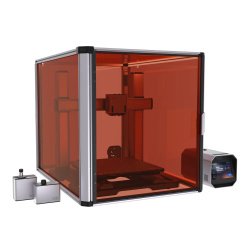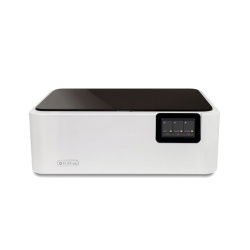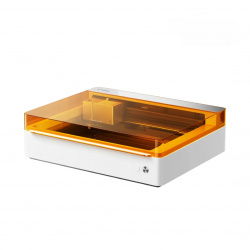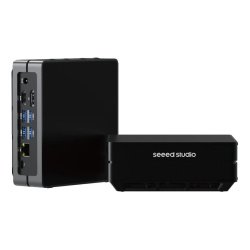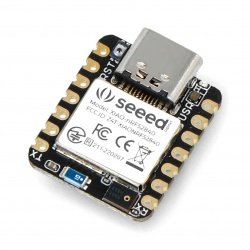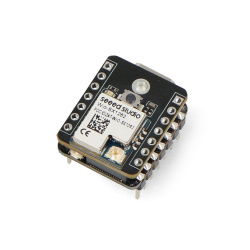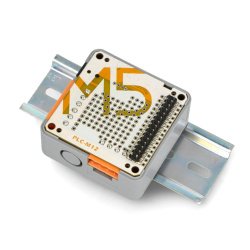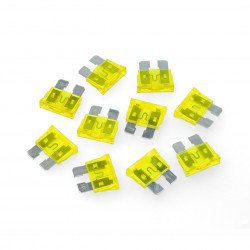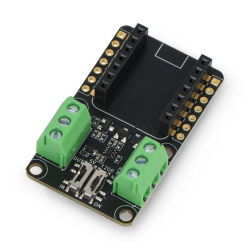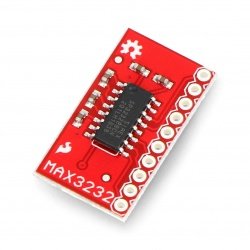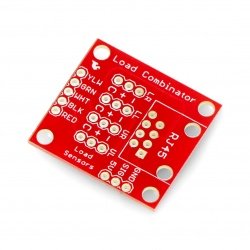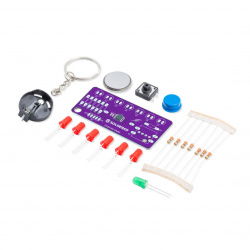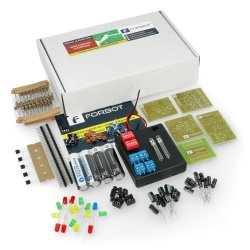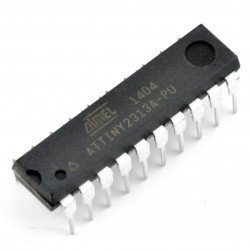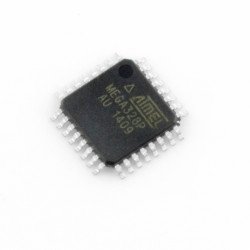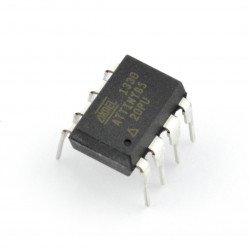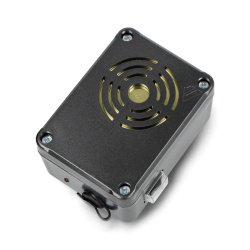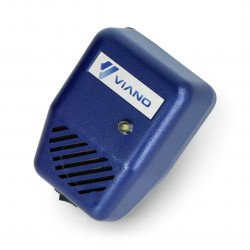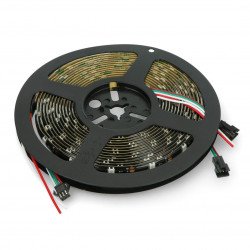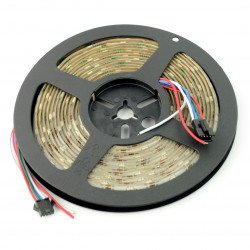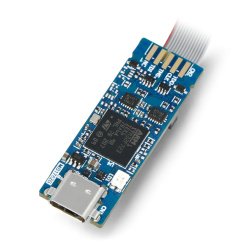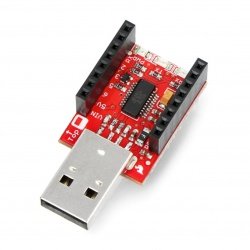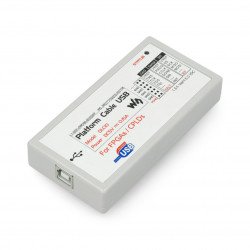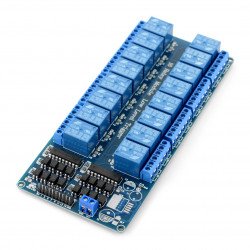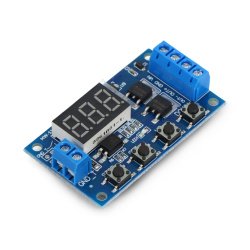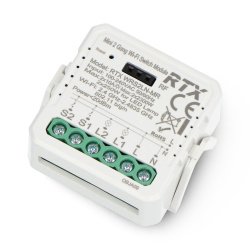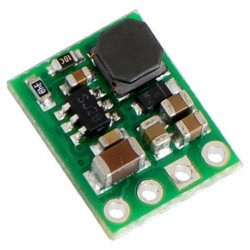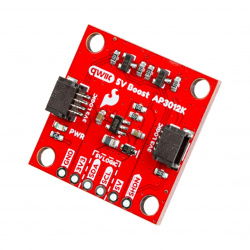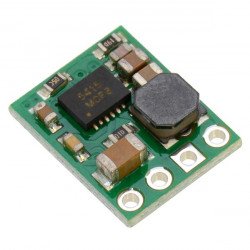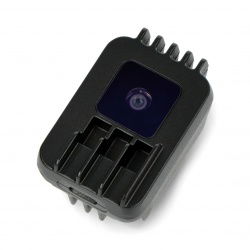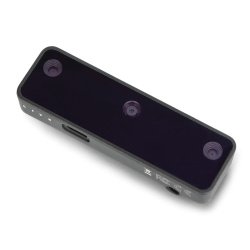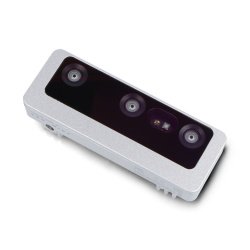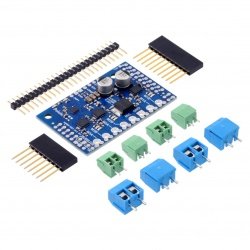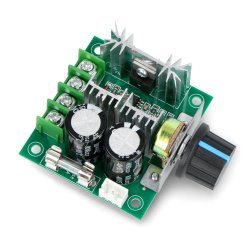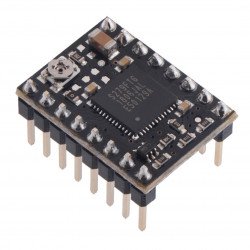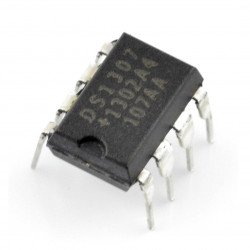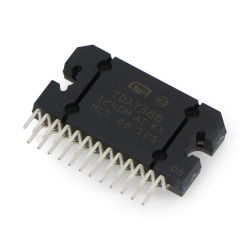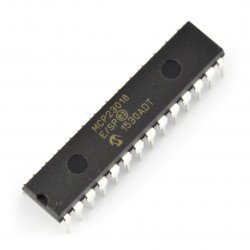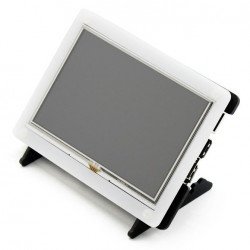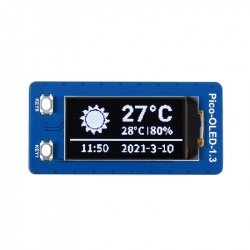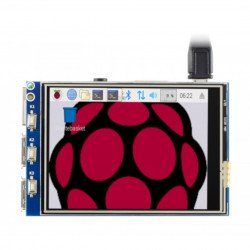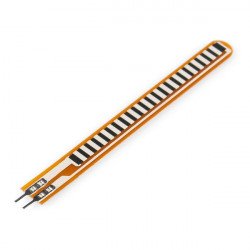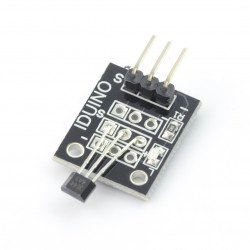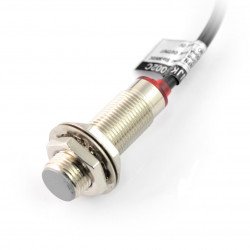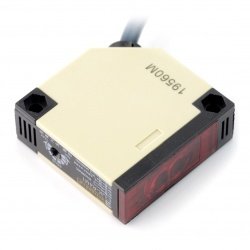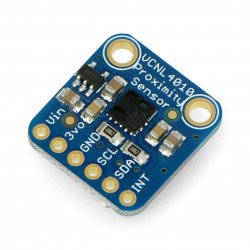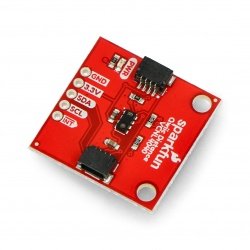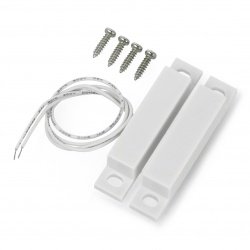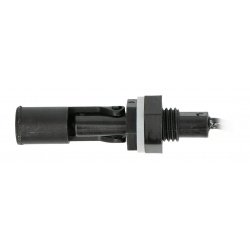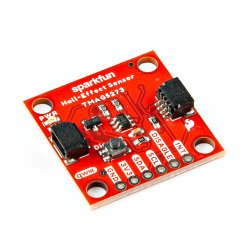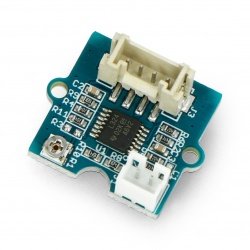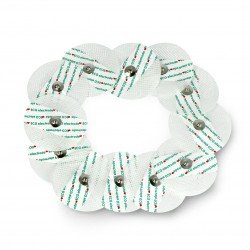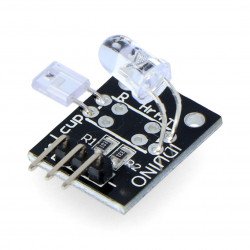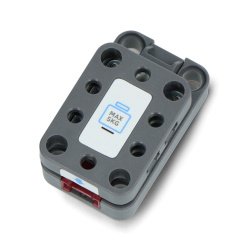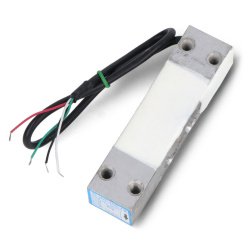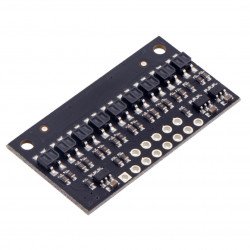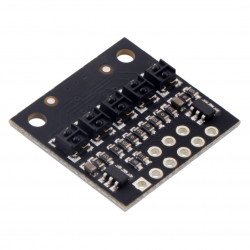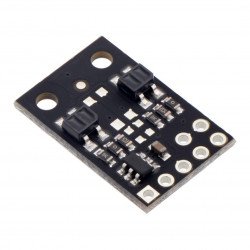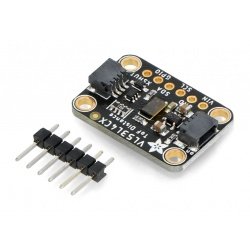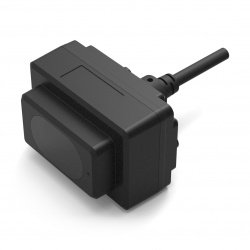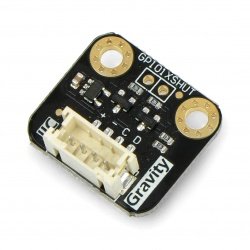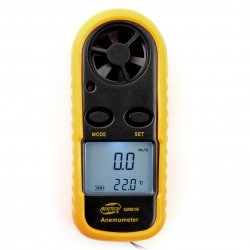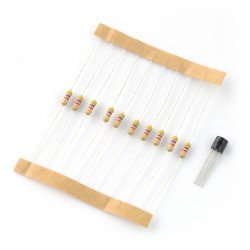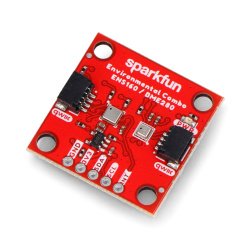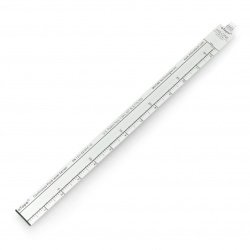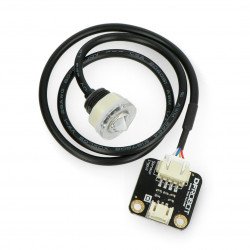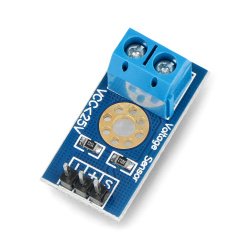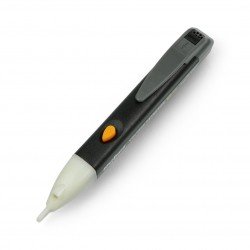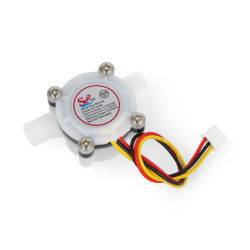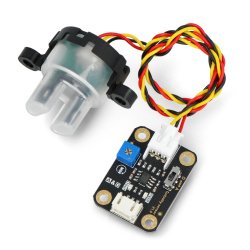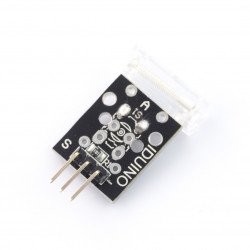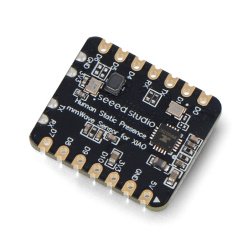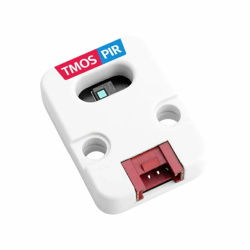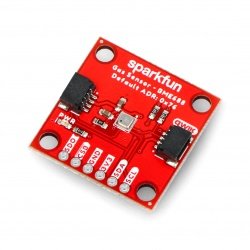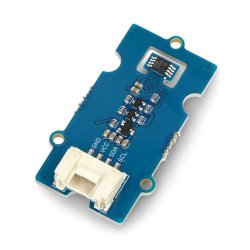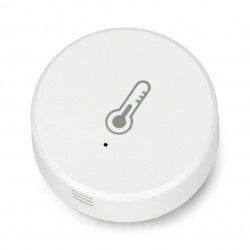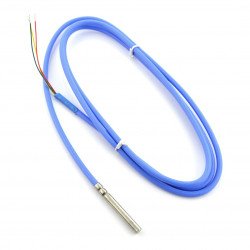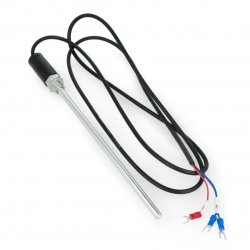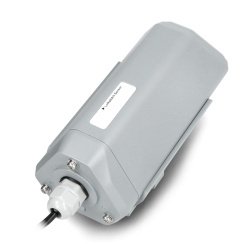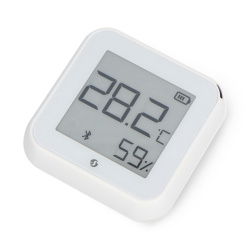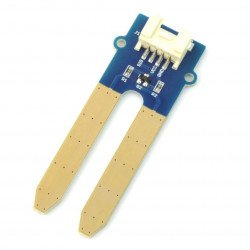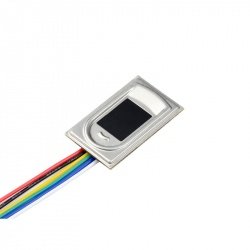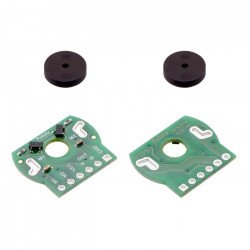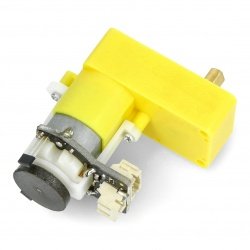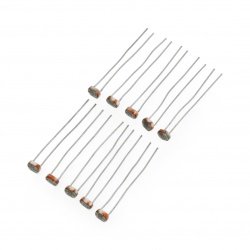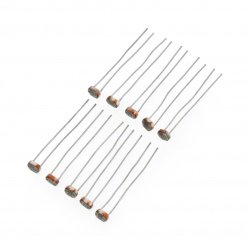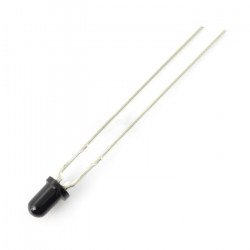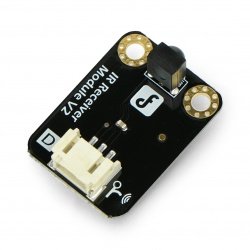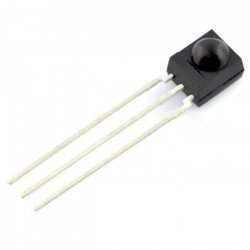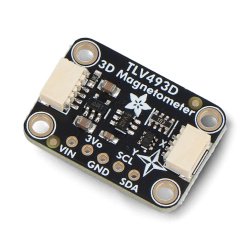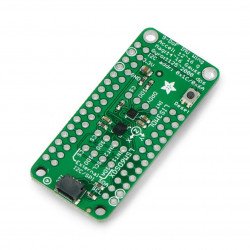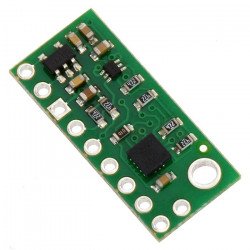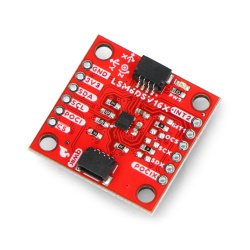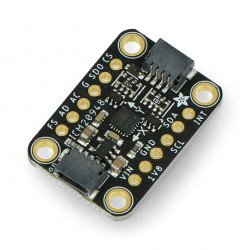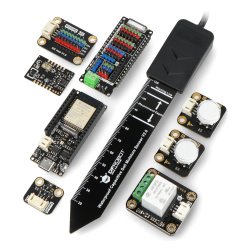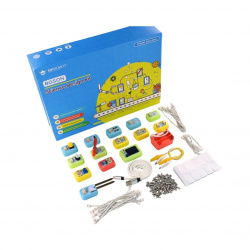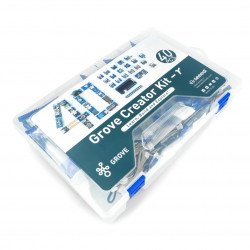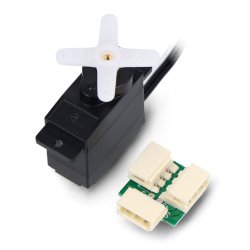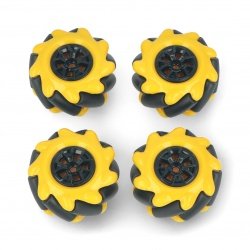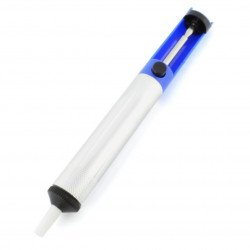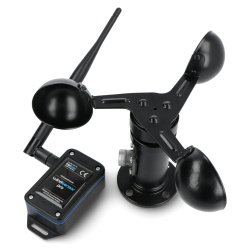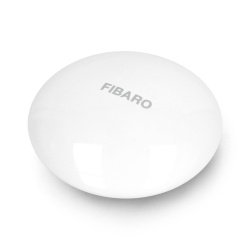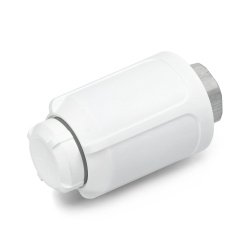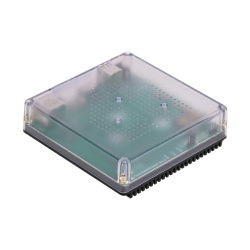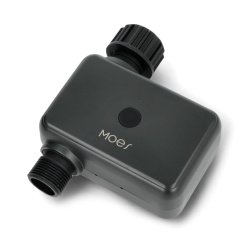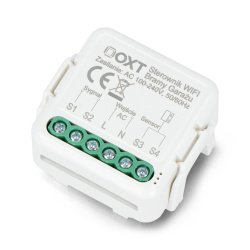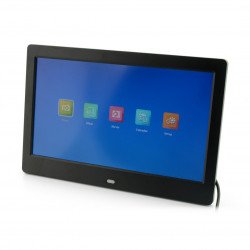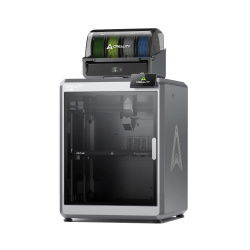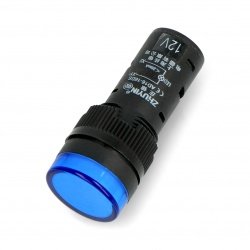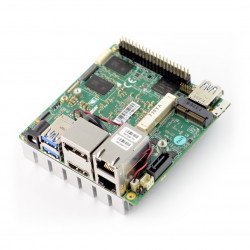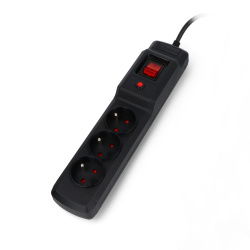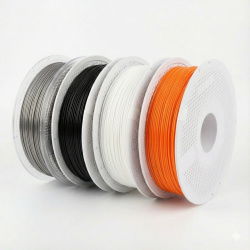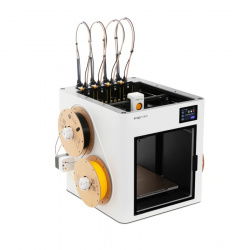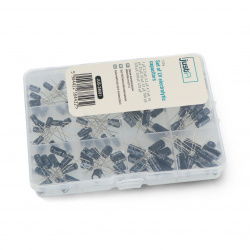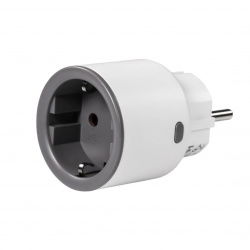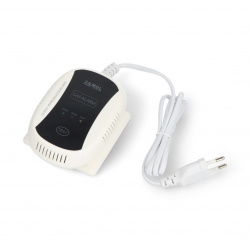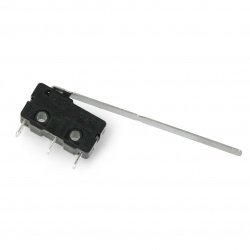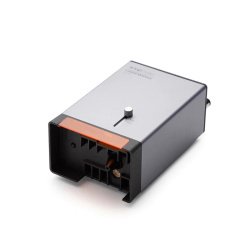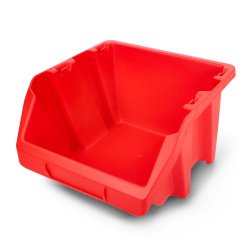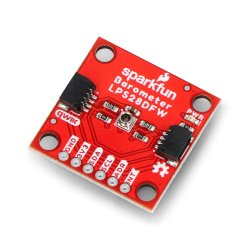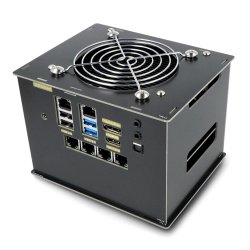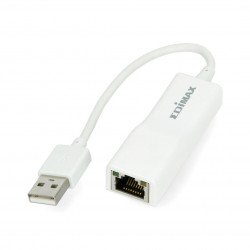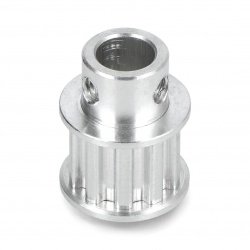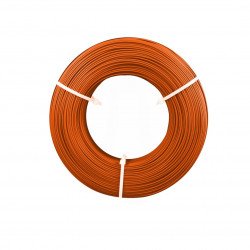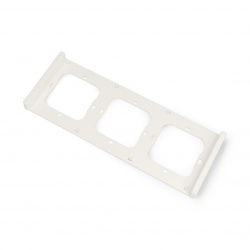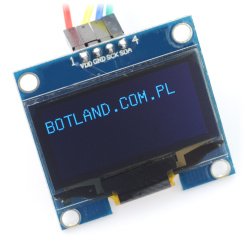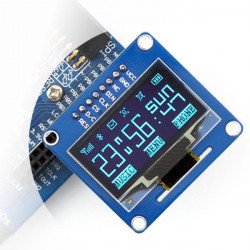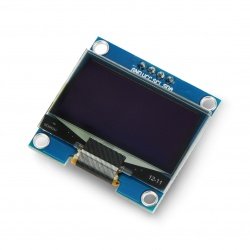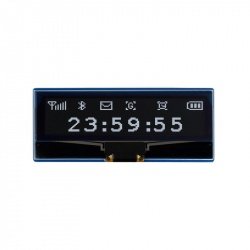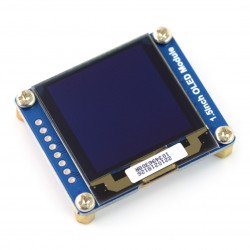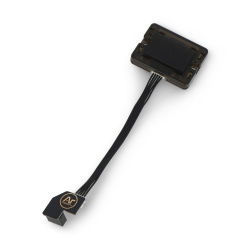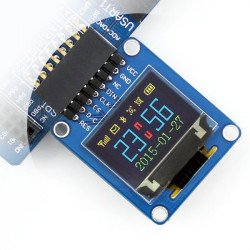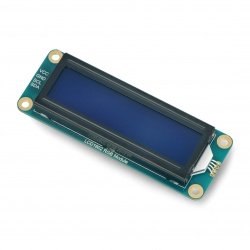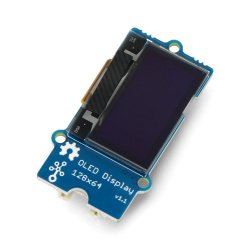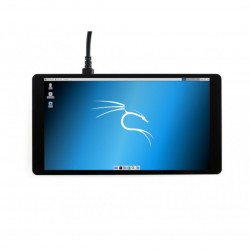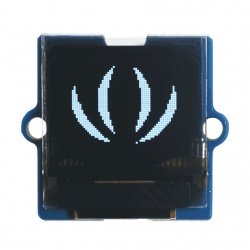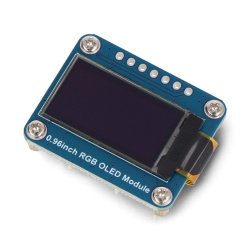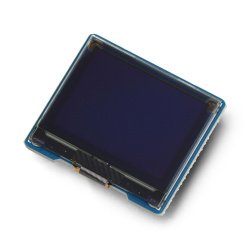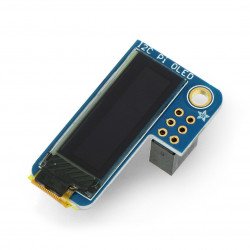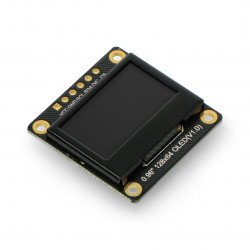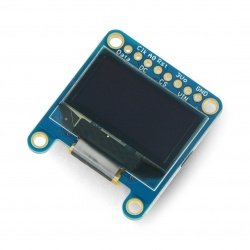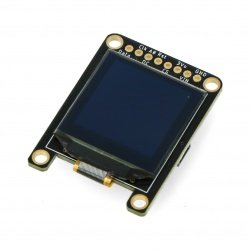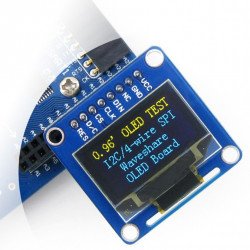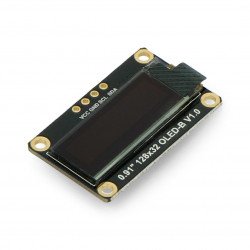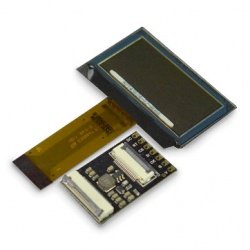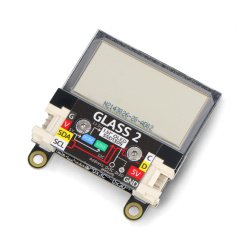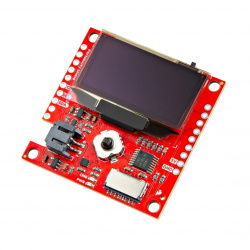Introduction of OLED displays was a revolution in the field of advanced technology and image display. It was a response to the ever-increasing needs and expectations of users, who started to notice more and more disadvantages of LCD and LED displays. OLED displays are also called organic displays. Their design is based on semiconductor technology. Among the advantages of OLED displays users include a very clear and detailed image, so it is a proposal for fans of above-average graphics and very high visual experience. OLED technology has found its application mainly in modern TV sets and computer monitors. More and more often OLED displays are offered by manufacturers of smartphones and other mobile devices. Moreover, they work perfectly well in control panels and control panels in complex systems and measuring devices. Botland offers a wide range of displays with OLED technology with different screen diagonals, resolutions and types of interfaces.
OLED displays
OLED blue graphic display 1.3’’ 128x64px I2C v2 - blue characters - SH1106
OLED blue display with a diagonal of 1.3" and a resolution of 128 x 64 px. The screen is based on SH1106 driver, works with voltages of 3.3 V and 5 V, and communicates over...Display OLED blue graphic 1.3'' (B) 128x64px SPI/I2C - straight connectors - Waveshare 10451
OLED blue display with a diagonal of 1.3" and a resolution of 128 x 64 px. The screen is based on SH1106 driver, works with voltages of 3.3 V and 5 V, communication via SPI or...OLED blue graphic display 1,3'' 128x64px I2C v2 - blue characters
OLED blue display with a diagonal of 1.3" and a resolution of 128 x 64 px. The screen is based on SH1106 driver, it works with voltages of 3.3 V and 5 V, and communicates over...2.23'' 128x32px OLED display - SPI/I2C - black/white - for Raspberry Pi Pico - Waveshare 19750
A display dedicated to the popular Raspberry Pi version Pico . It has a built-in SSD1305 driver and uses SPI and I2C buses. The screen resolution is 128 x 32 px and its...Display OLED White graphic 1.5'' 128x128px SPI/I2C - Waveshare 13992
OLED display white with a diagonal of 1.5" and a resolution of 128 x 128 px. Screen-based driver SSD1327 works with voltages of 3.3 V and 5 V, communication via SPI or I2C.OLED 1,8'' 128x64px display module for Argon ONE V5 case for Raspberry Pi 5
A compact OLED display module designed to integrate with the Argon ONE V5 enclosure for Raspberry Pi 5. It enables real-time presentation of key system status information -...OLED display 1,3'' 64x128px - SPI/I2C - black/white - for Raspberry Pi Pico - Waveshare 19376
A compact display equipped with connectors compatible with Raspberry Pi version Pico. It is equipped with two buttons for simple user interaction. It has a built-in SH1107...Graphical OLED color display 0.95 '' (A) 96x64px SPI - angled connectors - Waveshare 10507
0.95" OLED colour display with 96 x 64 px resolution. The screen based on the SSD1331 controller works with voltages of 3.3 V and 5 V and communicates via SPI. It has...LCD1602 I2C display 2x16 characters - color - RGB Waveshare 19537 backlight
Alphanumeric LCD1602 display manufactured by Waveshare company. It has a built-in PCA9633 driver, which allows to customize the color of displayed characters. The user can...Grove - OLED 0,66'' (SSD1306) 64x48px I2C - Seeedstudio 104020248
Monochrome OLED display produced by Seeedstudio. The screen is based on SSD1306 chip, its diagonal is 0.66" and the resolution is 64 x 48 px . The module is equipped with...- Reduced price
- SPECIAL OFFERS
OLED display 1.32'' 128x96px - SPI/I2C - 16 grayscale - black and white - Waveshare 24777
OLED display from Waveshare is a device that works perfectly with platforms such as Arduino or Raspberry Pi . Thanks to 4-wire SPI and I2C interfaces, it enables...PiOLED - display OLED 0,9'' 128x32px I2C - extension for Raspberry Pi - Adafruit 3527
Blue OLED display with 0.9" diagonal and 128 x 32 px resolution. The screen is based on SSD1306 driver, communicates via I2C. It has a connector adapted to Raspberry Pi...Monochrome OLED graphic display 0,96'' 128x64px I2C/SPI - DFRobot DFR0650
Monochrome OLED graphic display with 0.96" diagonal and 128 x 64 px resolution. For communication with the microcontroller it uses I2C or SPI interface, the default is...Monochrome graphical OLED display 0,96 '' 128x64px - I2C/SPI - Adafruit 326
Small monochrome OLED-display with a diagonal of 0.96" and a resolution of 128 x 64. Characterized by high contrast. The device works with voltages of 3.3 V and 5 V,...- Reduced price
- SPECIAL OFFERS
Monochrome graphical OLED display 1,12'' 128x128px - STEMMA QT / Qwiic - Adafruit 5297
Graphic monochrome OLED display created by Adafruit. The screen has 1.12" diagonal and 128 x 128 px resolution. It is based on SSD1107 driver chip, which communicates via...- Reduced price
- SPECIAL OFFERS
Two-color graphical OLED display 0.96'' (B) 128x64px SPI/I2C - straight connectors - Waveshare 9092
OLED-display with a diagonal of 0.96 " and a resolution of 128 x 64 px with colors: yellow and blue. The screen is based on the SSD1306 controller, it works with voltages of...Monochrome OLED graphic display 0,91'' 128x32px I2C - DFRobot DFR0648
Graphic OLED display with white characters on black background, monochrome . The screen size is 0.91" and the resolution is 128 x 32 px. The display uses SSD1306 chip ,...Fermion - transparent OLED 1,51'' 128x56px SPI display with converter - DFRobot DFR0934
A small OLED display from the Fermion series by DFRobot with a diagonal of 1.51 " and a resolution of 128 x 64 px . The monochrome display has a transparent background and...Glass2 Unit - with transparent 1,51'' 128x64px OLED display - M5Stack U158-B
Glass2 Unit is a module with a 1.51" OLED display and an SSD1309 controller. The display area is 35.5 x 18 mm and the screen resolution is 128 x 64 px . Moreover, the...Portability Shield - overlay with 1,3'' OLED display and joystick - SparkFun DEV-27510
SparkFun's Portability Shield is a complete interface overlay that adds a set of features to compatible development boards for field applications. With a 1.3" OLED display,...OLED graphic display Velleman VMA438 0.96 '' 128x64px I2C Blue
OLED blue display with a diagonal of 0.96" and a resolution of 128 x 64 px. The screen is based on the controller SSD1306, works with voltages of 3.3 V and 5 V and...See also
How are OLED displays constructed?
Like LED displays, OLED displays are also based on semiconductor technology. The main display layer has a thickness of 100 nm to 500 nm, which is approximately 1/200 the thickness of a human hair. Most often, OLED displays are made of 2-3 layers of organic material, in which two conductive layers are responsible for transmitting electrons from the anode to the final third layer, which emits light. The display foundation is usually made of plastics, glass and foil, and the emissive layer is made of polymers. The anode is responsible for introducing electron holes during current flow, and the cathode is responsible for introducing electrons during current flow. The conductive layer is responsible for supplying electron holes from the cathode and is made of a conductive polymer - polyaniline. The emission layer is responsible for the emission of electrons from the cathode and is made of polyfluorene and provides the target image.
How do OLED displays work?
For the OLED display to work, it must be supplied with auxiliary power from a battery or a stabilized power supply. Electric current flows from the cathode to the anode through the conductive layers. The cathode introduces electrons into the emission layer, and the anode removes electrons from the conductive layer, i.e. introduces electron holes into it. Between the emission and conduction layers, when electrons encounter an electron hole, they fill it, resulting in the release of energy in the form of photons, i.e. light particles. In this way, the emissive layer of the OLED display emits the image. The color of the glowing image depends on the quantitative chemical composition of the display layers, and its brightness depends on the power consumption, with the higher the power consumption, the brighter the display will glow. The OLED display is a high-quality screen used in many projects.
OLED display - many practical advantages and applications
The popularity of OLED displays in many consumer and professional applications is based on their many advantages. The use of plastic materials increased the durability of the displays and reduced their weight . Moreover, due to the absorption of light by the glass foundation layer in LED and LCD displays, which is not used or is added in a small amount in OLED displays, the use of plastic and polymer elements resulted in a clearer image and eliminated the need to use an auxiliary backlight , which has a positive impact on reducing energy consumption from the power source. OLED displays are also very readable over a wide range of angles between the observer's line of sight and the normal to the display surface.
OLED displays - FAQ
The OLED display is based on the technology of organic light-emitting diodes, which are a variety of conventional LEDs , but based on materials of organic origin (unlike classic semiconductors, e.g. gallium arsenide).
AMOLED displays are a variation of OLED technology that use thin-film transistors located just below the actual display panel to switch pixels. A huge advantage of AMOLED technology is the ability to achieve higher resolutions and matrix sizes compared to OLED technology with a passive matrix (PMOLED).
The number of shades that can be displayed depends on the display model. In the case of small and inexpensive displays with diagonals of 1 inch, two-color solutions (e.g. yellow and blue) are common, while full-color graphic matrices can display 16 million colors (3 x 8 bit) and even more.
An OLED screen is based on the active generation of light points through independent, miniature LED structures "sewn" in the display matrix, while color LCD screens are based on the phenomenon of light polarization and require the use of additional backlight with a special matting screen. Technological differences mean that OLED screens can achieve better contrast and higher brightness compared to LCD matrices .




